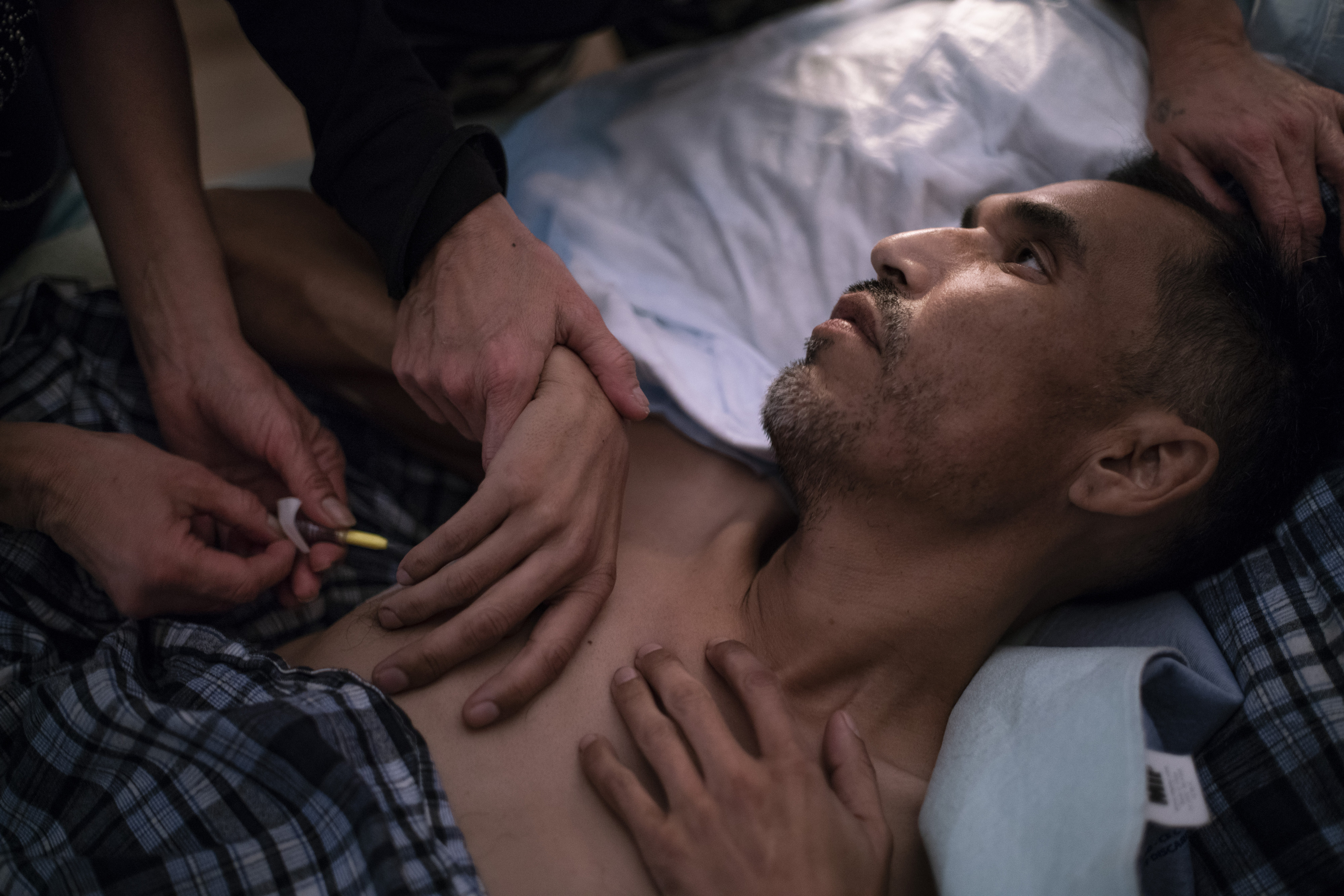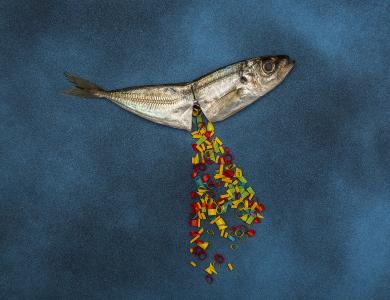Photojournalist and member of Panos Pictures Ian Willms shares the sobering story of how Canada’s oil sands development is killing the country’s Indigenous communities in this week’s Beyond the Frame. His series was shortlisted in the 2020 Professional competition’s Documentary category.
‘At 3:04pm on November 16th, 2019, the community of Fort Chipewyan lost a friend, a son, a brother, an uncle, a helping hand, a consistent joker, a loving, warm, musical soul. Warren lived with a poetic beauty and stood as a warrior in the face of unjust tragedy.’

Fort Chipewyan is in northern Alberta, Canada, just south of the border with the Northwest territories. There’s something about the winter in the far north of Canada. You don’t just ‘get through’ or ‘put up with’ the colder months there. You have a relationship with the season. Half a century ago, at the end of November in Fort Chipewyan, Warren John Simpson was born on winter’s doorstep.
Warren was part of the Dene people, an indigenous group of First Nations who inhabit the northern boreal and Arctic regions of Canada. He lived in Fort Chipewyan for most of his life. In 2017 he was diagnosed with Cholangiocarcinoma, which is an aggressive form of bile duct cancer that typically occurs in 1 out of 100,000 people. Warren was the sixth case of Cholangiocarcinoma in the hamlet, which has a population of just 1,200.
When he reached stage four of his cancer, Warren wanted to tell his story so that others were aware of the unusually high cancer rates in the area. Warren asked me to return to Fort Chipewyan, where I had been photographing the impacts of the nearby oil sands industry for close to a decade. When I arrived, I was surprised to find out that Warren wanted me to stay with him at his home as he died.
Warren and I had a conversation about the cause of his cancer:
Me: ‘Do you think your cancer was caused by pollution from industry?’
Warren: ‘Absolutely. Absolutely. 100%’
Me: ‘Do you think that the other cases of this cancer were caused by pollution from industry as well?’
Warren: ‘Yes, absolutely.’
Me: ‘You used to work for the integrated energy company Suncor, right?’
Warren: ‘Yes I did.’
Me: ‘You told me in the Spring that you really missed working there.’
Warren: ‘Yes.’
Me: ‘You liked it?’
Warren: ‘Yes.’
A healthcare professional familiar with Warren’s cancer spoke to me on the condition of anonymity: ‘It’s got to be environmental [contamination]. We have way too many cancers. Just, way too many cancers for our population for it to be coincidence.’
A couple weeks before his 50th birthday, Warren declined into an increasingly delirious state. His mind wandered to various memories and dreams. His speech grew increasingly disassociated and formless. Family members opted to stay by him through the night instead of returning to their homes.
Everyone took shifts staying with Warren, in or beside his bed. The kitchen became a refuge of bottomless coffee and cigarettes. As the morning light faded in, we all knew it was likely to be Warren’s last day on earth. A Dene gospel CD made its 73rd replay. Dirty cups perpetually rotated through the sink. Food was made but no one was hungry. Best friends flew in from the south. All of Fort Chipewyan seemed to cram into the tiny bedroom to lay their hands on the man they loved.
As Warren’s breaths grew more laboured, an elder named Rene Bruno came to recite Hail Mary in Dene. The afternoon began to darken as the light left Warren’s eyes. At 3:04pm on November 16th, 2019, the community of Fort Chipewyan lost a friend, a son, a brother, an uncle, a helping hand, a consistent joker, a loving, warm, musical soul. Warren lived with a poetic beauty and stood as a warrior in the face of unjust tragedy.
Scientifically, logically, mathematically, Warren should not have died. He had a 0.0001% chance of contracting Cholangiocarcinoma in his lifetime, but he did anyway. Along with five other people in a town of 1,200 people. Their lives were taken from them through willful negligence. In the words of Dr. John O’Connor, who has known and cared for residents of Fort Chipewyan for nearly two decades, said: ‘[The Government of Canada has] not budged toward a health study that was promised ten years ago. Nothing has been done to get to the bottom of it and Warren becomes another statistic. [49] years old. His only risk is that he lived in Fort Chip.’
After a well-attended wake and funeral, Warren was flown to Edmonton for cremation. Along the way, he passed over the oil sands sites where he used to work. The same sites where he believes the pollution that caused his cancer originated.
Warren’s Aunt Alice Rigney turned to me and said, ‘It’s time to seriously start looking at this community and what’s happening to us, because we can’t afford to lose precious people like Warren John Simpson.’



